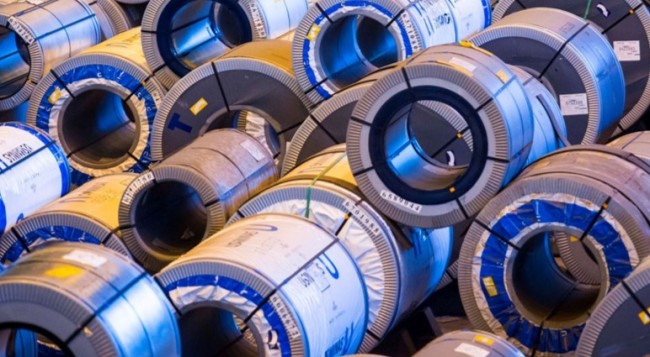A continued oversupply of global steel products and growing protectionism around the world are weighing on South Korean steelmakers already struggling to find fresh growth engines for the future.
Global steel production capacity last year stood at around 2.23 billion tons, down 0.3 percent from the previous year, said the OECD Steel Committee at a regular meeting in Paris last week.
Though the figure was nearly unchanged, it far exceeded demand -- by 576 million tons, which was almost 19 times the combined steel export volume for all Korean firms. Last year, Korean steelmakers exported 30.4 million tons of steel in the global market.
Despite the oversupply, “many new investments continue to take place around the world,” and production capacity stands to increase by around 52 million tons from 2018 to 2020, according to the committee.
 |
(OECD Report) |
The continued supply glut sends a negative signal to Korea, which has the world’s fifth-largest production capacity. Last year, Korea was capable of producing 72 million tons of steel, surpassed only by China, India, Japan and the US.
Kwon Soon-woo, a researcher at SK Securities, said the expansion of Chinese steel production -- driven by more relaxed environmental regulations -- was having a negative impact on Korea’s largest steelmaker, Posco, amid slow growth in steel demand.
Alongside the supply glut, Korean steelmakers are also facing tariffs from other nations attempting to protect their industries.
Last month, the US Commerce Department decided to impose anti-dumping tariffs on Korean steel products. It decided to impose tariffs of 7.33 percent on Korean steelmakers, including Dongkuk Steel, Nexteel and the SeAh Steel Corporation. Hyundai Steel was excluded during the final ruling.
Last week, the Chinese government temporarily decided to impose anti-dumping tariffs of 23.1 percent on Posco products. A final decision will be made in July. During the same week, the Mexican government decided to continue the 15 percent tariff on imported steel products for nations with which it has no bilateral trade deals -- including Korea.
“Amid growing trade barriers around the world, the Korean government has done little to protect the local steel industry. We also need to take some measures to protect the industry,” said an anonymous steel industry official, adding that steel products imported into Korea from China, Europe and India are not subject to tariffs.
Korean steelmakers are weathering the challenges by diversifying their business portfolios. Posco is fostering an energy material business and recently changed the name of one of its affiliates, formerly Posco Chemtech, to Posco Chemical. Hyundai Steel is increasing its investment in metal separators for Hyundai Motor’s hydrogen cars.
By Shin Ji-hye (
shinjh@heraldcorp.com)








